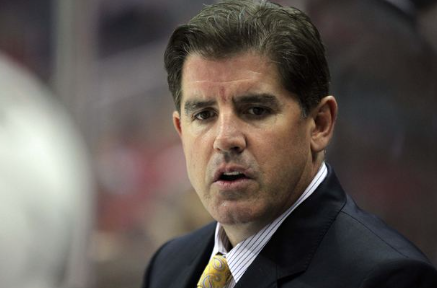
The New York Rangers have stunned fans this offseason by considering the trade of their captain, defenseman Jacob Trouba, a move that has caught many by surprise. Trouba, who has become a beloved figure among Rangers supporters for his strong defensive play and leadership on and off the ice, was reportedly close to being traded to the Detroit Red Wings.
However, using the leverage granted by his 15-team no-trade clause, Trouba was able to halt the trade, preventing the deal from going through.
This potential trade marks a significant moment for the Rangers, as it would mean the departure of a key player who has been instrumental in the team’s recent success. Trouba’s tenure with the Rangers has been marked by his physical presence on the ice, his ability to shut down opposing teams’ top players, and his leadership qualities that earned him the captaincy.

His potential exit from the team would not only leave a gap in the Rangers’ defense but also in their locker room, where he has been a respected voice and leader.
The situation highlights the power that no-trade clauses give to players in the NHL. These clauses are often negotiated into contracts by veteran players who wish to have more control over their careers and avoid being traded to teams or cities they do not wish to play for.
Trouba’s decision to block the trade to Detroit is a prime example of how players can use these clauses to influence their futures, even when their team is looking to make significant roster changes.
The Rangers’ consideration of trading Trouba also raises questions about the team’s direction and strategy for the future. While the team has a wealth of young talent and is looking to build a contender, trading away a player of Trouba’s caliber could signal a shift in philosophy or a need to address other areas of the roster, such as acquiring additional scoring or cap space flexibility.
In conclusion, the potential departure of Jacob Trouba from the New York Rangers, despite being halted for now, is a development that has significant implications for both the player and the team.
While Trouba has used his no-trade clause to stop the move to Detroit, the situation remains unresolved, and it is unclear what the future holds for him in New York. If the Rangers continue to explore trade options,
it could lead to further changes in the team’s lineup and strategy, potentially affecting their performance in the upcoming season. For now, Trouba remains a Ranger, but the uncertainty surrounding his future is a reminder of the ever-changing nature of professional sports and the difficult decisions that teams must make in their pursuit of success.
Leave a Reply